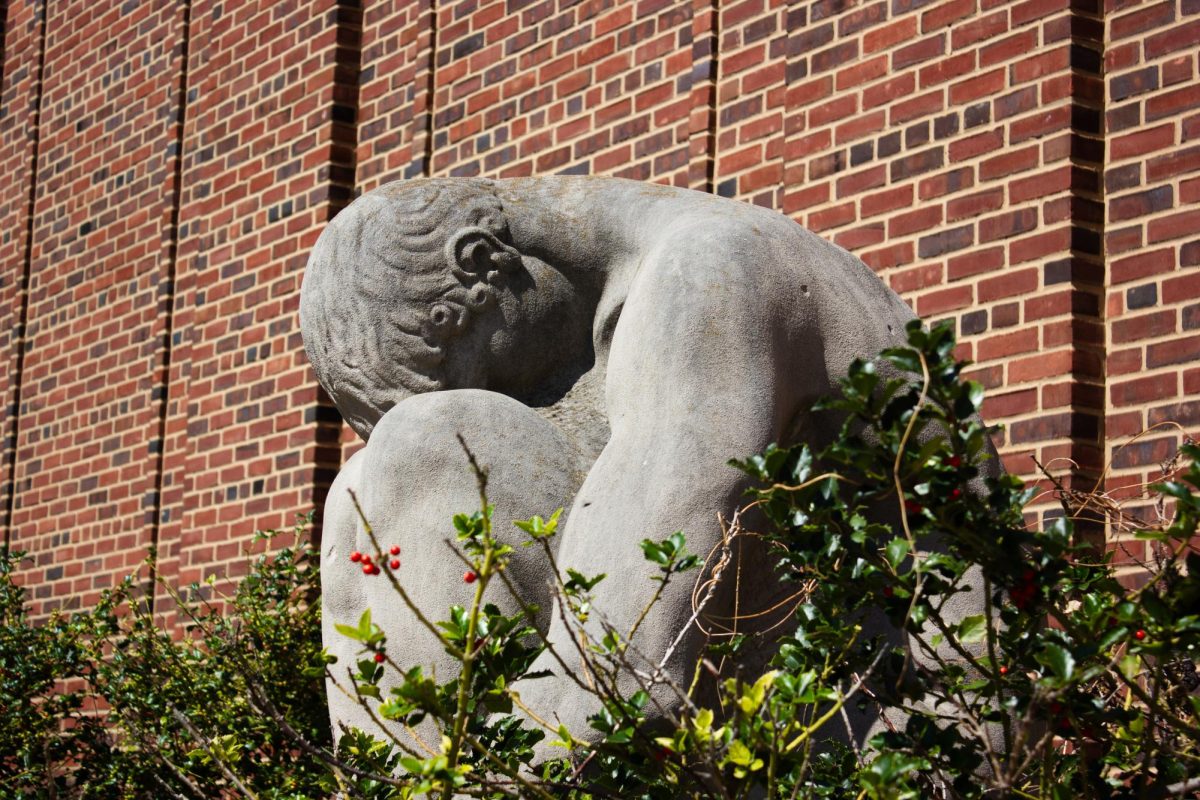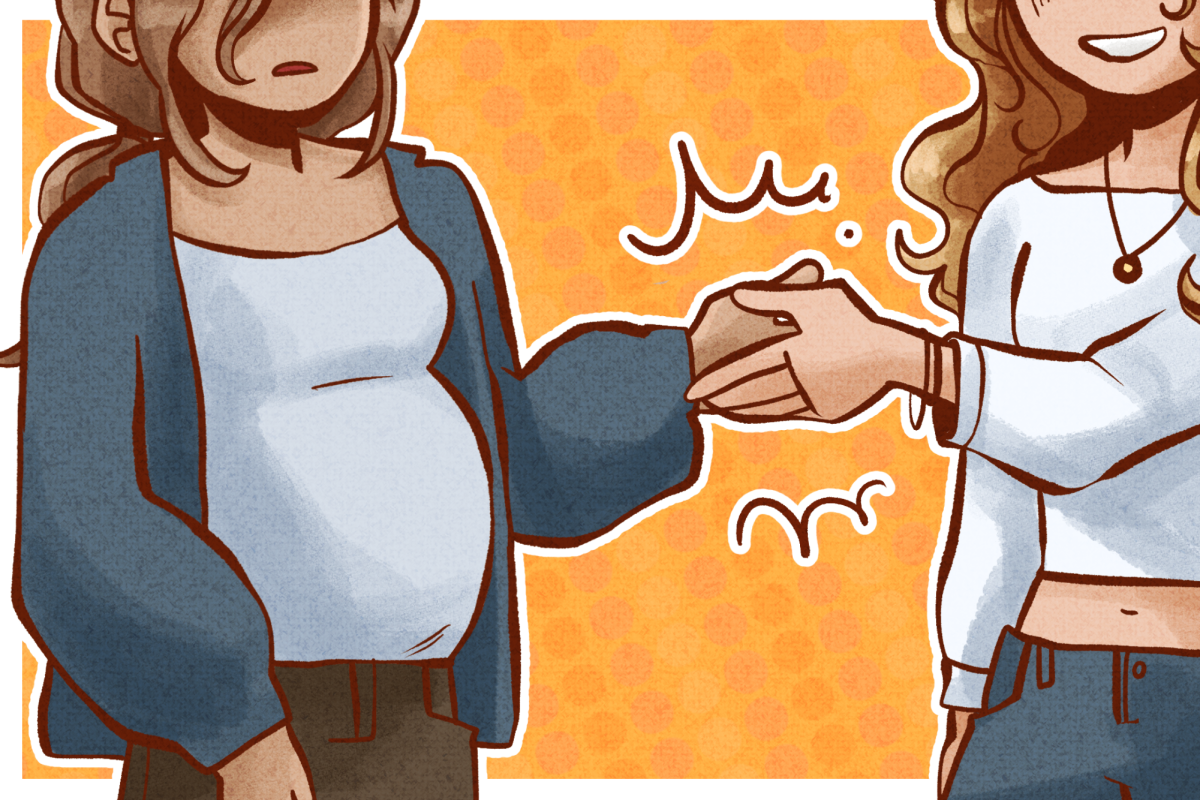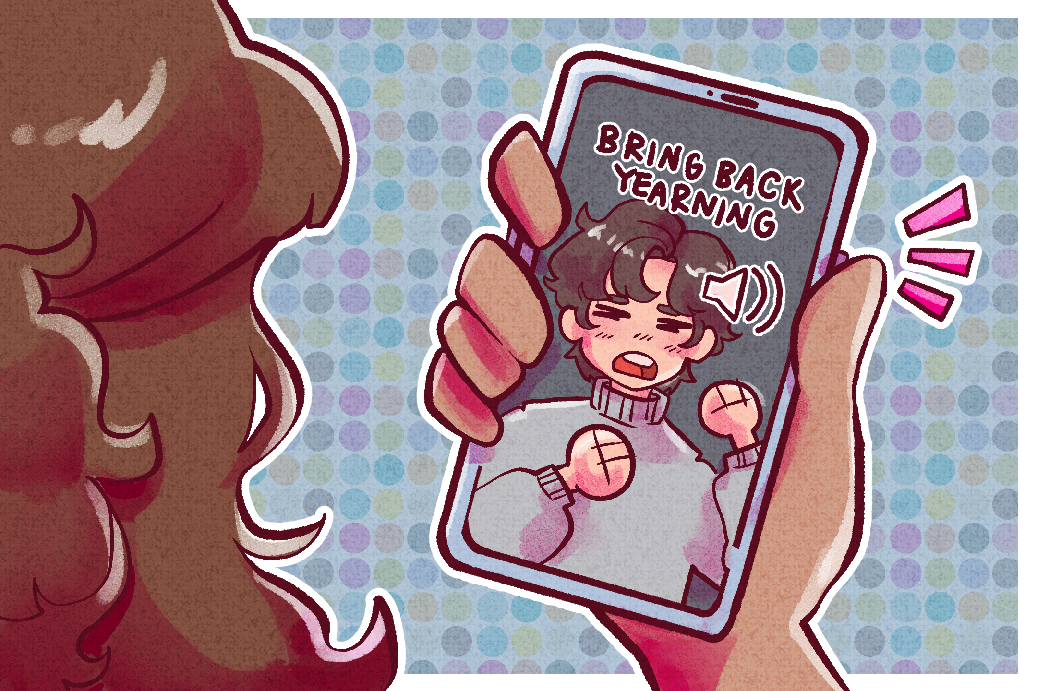If you were to ask the public what the current state of empathy is in the U.S., the majority, including me, would assume it is deteriorating. Narcissism, individualistic attitudes, political polarization and loneliness are all on the rise — so this assumption would seem reasonable. To most people, the moral decline of every generation seems to be more a fact of life than an opinion.
However, our belief in this decay in the social fabric of our country may be the symptom of a different epidemic.
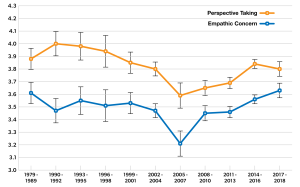
A 2011 study showed that empathy in U.S. college students has been declining since 1979, causing a litany of columns and articles to be published attempting to explain why and how to fix such a concerning drop.
Since outward empathy can come in many forms such as helping others, volunteering or simply being kind, I would say this concern was warranted. However, recent updates to the study show a dramatic rebound back to similar levels in the 1970s, proving that empathy isn’t fixed on a declining trend.
This contradicts my preconceived notion of the current state of empathy and seemingly the rest of the world’s.
Get The Daily Illini in your inbox!
A 2023 study proved that this perception of decreased empathy is widely held in the U.S. by using surveys, in which a majority of respondents claimed they felt a decline over the last few decades.
So, what is this disconnect between the true fluctuating state of empathy and people’s perception of a consistent decline? Feeling empathetic over actually being empathetic.
For example, feelings of empathy can change with the always-shifting focus of political issues. People may feel empathetic towards the Vietnamese in the ’60s or, more contemporarily, the Palestinians. While these empathetic ideals may be present in people, it doesn’t necessarily translate into direct actions.
We see this with 50% of democratic voters demanding a ceasefire, but only 13% demonstrating for such action to take place through casting uncommitted ballots — a symbolic action that has no cost.
The same can be said about everyday displays of empathy.
I see a lot of people daily: walking by me, sitting next to me or working with me. Sometimes it is the same people, and other times it is strangers, but I notice no interaction between us. This isn’t to say that these people have no empathy. Rather, they never display it as a consequence of a greater societal issue — a lack of sociability.
Of course, most people have friends they talk to on a normal basis, and they may even have empathetic moments together. However, if you only communicate with those you already know, eventually you will begin to feel isolated — as if the rest of the world doesn’t care about you.
Now while these experiences are individualized, the data is pointing to a broader isolation of the public.
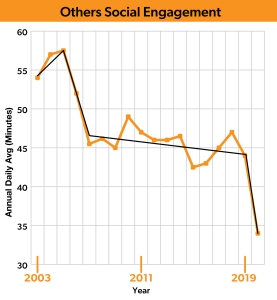
In 2023, researchers found that people are spending significantly less time socializing with friends, family, companions and strangers. Furthermore, people are spending more time in isolation from other people, showing that social connectedness is declining.
Levels of empathy can fluctuate with the times, but sociability and displays of kindness associated with empathy are declining despite how we feel on the inside. This is the epidemic: not a lack of empathy but a lack of social connectedness.
Regardless, the effects are the same. People are experiencing fewer displays of empathy and greater isolation. Luckily, this problem is easy to solve — we all just need to do more.
I have been trying to demonstrate to myself that such a change is possible by starting friendly conversations with strangers, complimenting people walking past me or just saying hello to someone. These small things do make me happier, but I know that they bring even more joy to those strangers.
This may seem like a scary concept; I was definitely scared the first time I tried it, but these fears are just in your head. Not to mention that you will never know what you are capable of doing until you try — everyone has to start somewhere.
Remember most people are kind and empathetic, but social anxiety is keeping them from acting on it. We can bring the best out of each other because kindness is contagious, and it only takes one person for the spread to start. That person can, and should, be you.
Grayson is a sophomore in LAS.



